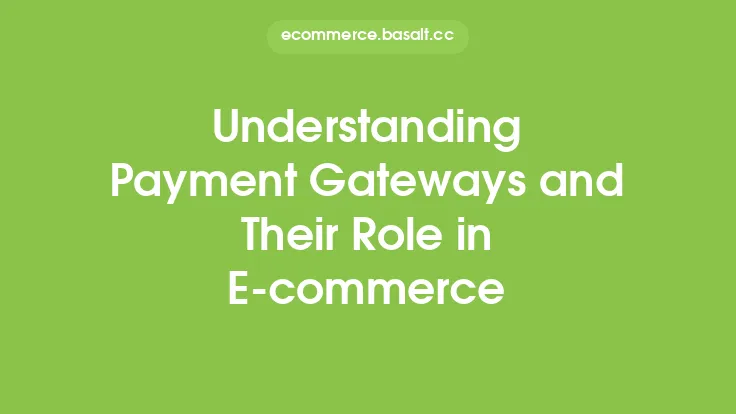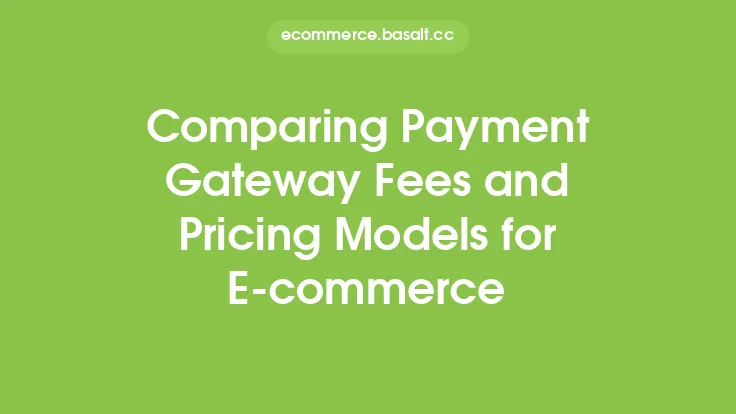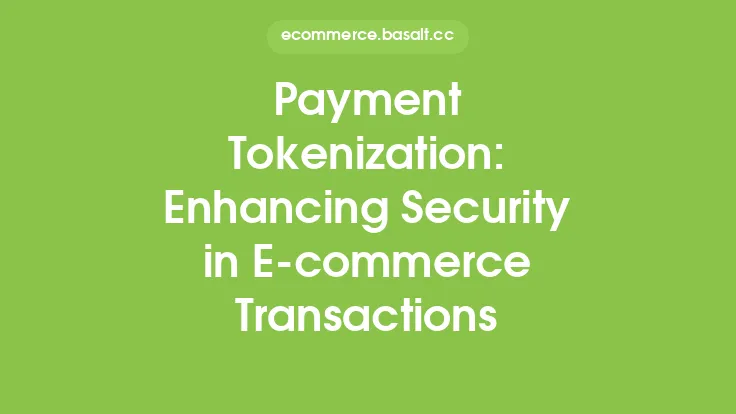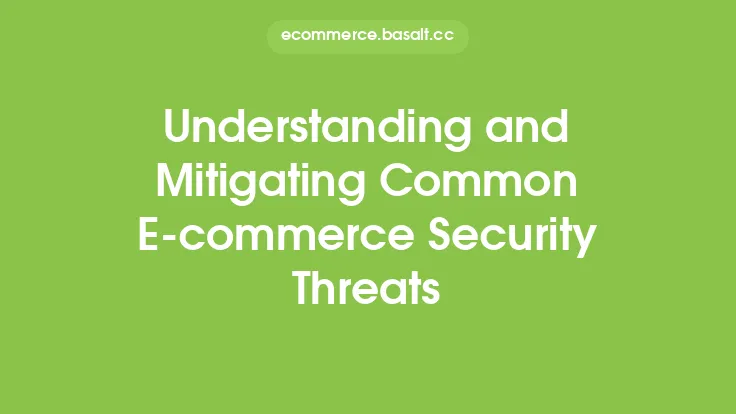The world of e-commerce has experienced tremendous growth over the past decade, with online sales projected to continue increasing in the coming years. As more businesses shift their focus to online sales, the importance of reliable and secure payment systems has become a top priority. E-commerce payment systems and gateways play a crucial role in facilitating online transactions, enabling businesses to accept payments from customers around the world. In this article, we will delve into the world of e-commerce payment systems and gateways, exploring the different types, benefits, and global trends.
Types of E-commerce Payment Systems
There are several types of e-commerce payment systems, each with its own unique features and benefits. The most common types include:
- Credit/Debit Card Payments: This is one of the most widely used payment methods, allowing customers to make payments using their credit or debit cards.
- Online Banking Payments: This method enables customers to make payments directly from their online banking accounts.
- Digital Wallets: Digital wallets, such as PayPal, Apple Pay, and Google Pay, allow customers to store their payment information and make transactions with ease.
- Cryptocurrency Payments: With the rise of cryptocurrencies, such as Bitcoin, some e-commerce businesses are now accepting cryptocurrency payments.
- Invoice Payments: This method allows customers to receive an invoice for their purchase and make payments via bank transfer or other accepted methods.
E-commerce Payment Gateways
E-commerce payment gateways are the platforms that facilitate online transactions, connecting merchants to payment processors and banks. The most popular payment gateways include:
- PayPal: One of the most widely used payment gateways, PayPal offers a range of payment solutions for businesses and individuals.
- Stripe: Stripe is a popular payment gateway that offers a range of payment solutions, including credit card payments, digital wallets, and more.
- Authorize.net: Authorize.net is a payment gateway that offers a range of payment solutions, including credit card payments, e-checks, and more.
- Square: Square is a payment gateway that offers a range of payment solutions, including credit card payments, digital wallets, and more.
Benefits of E-commerce Payment Systems
E-commerce payment systems offer a range of benefits for businesses, including:
- Increased Sales: By offering a range of payment options, businesses can increase sales and revenue.
- Improved Customer Experience: E-commerce payment systems offer a convenient and secure way for customers to make payments, improving the overall customer experience.
- Reduced Cart Abandonment: By offering a range of payment options, businesses can reduce cart abandonment rates and increase conversions.
- Enhanced Security: E-commerce payment systems offer advanced security features, such as encryption and tokenization, to protect sensitive customer information.
Global Trends in E-commerce Payment Systems
The global e-commerce payment landscape is constantly evolving, with new trends and technologies emerging all the time. Some of the current trends include:
- Mobile Payments: With the rise of mobile commerce, mobile payments are becoming increasingly popular, with many businesses now offering mobile payment options.
- Contactless Payments: Contactless payments, such as Apple Pay and Google Pay, are becoming increasingly popular, offering customers a convenient and secure way to make payments.
- Cryptocurrency Payments: With the rise of cryptocurrencies, some businesses are now accepting cryptocurrency payments, offering customers a new way to make transactions.
- Biometric Payments: Biometric payments, such as facial recognition and fingerprint scanning, are becoming increasingly popular, offering customers a secure and convenient way to make payments.
Security and Compliance in E-commerce Payment Systems
Security and compliance are critical components of e-commerce payment systems, with businesses required to comply with a range of regulations and standards. Some of the key security and compliance considerations include:
- PCI-DSS Compliance: Businesses are required to comply with the Payment Card Industry Data Security Standard (PCI-DSS), which sets out a range of security requirements for businesses that handle credit card information.
- GDPR Compliance: Businesses are required to comply with the General Data Protection Regulation (GDPR), which sets out a range of requirements for the handling of personal data.
- Encryption: Businesses are required to use encryption to protect sensitive customer information, such as credit card numbers and personal data.
- Tokenization: Businesses are required to use tokenization to protect sensitive customer information, such as credit card numbers and personal data.
Future of E-commerce Payment Systems
The future of e-commerce payment systems is exciting, with new technologies and trends emerging all the time. Some of the potential future developments include:
- Increased Use of Artificial Intelligence: Artificial intelligence is likely to play a bigger role in e-commerce payment systems, with AI-powered payment platforms and chatbots becoming increasingly popular.
- Increased Use of Blockchain: Blockchain technology is likely to play a bigger role in e-commerce payment systems, with blockchain-based payment platforms and cryptocurrencies becoming increasingly popular.
- Increased Use of Biometric Payments: Biometric payments, such as facial recognition and fingerprint scanning, are likely to become increasingly popular, offering customers a secure and convenient way to make payments.
- Increased Use of Mobile Payments: Mobile payments are likely to become increasingly popular, with many businesses now offering mobile payment options and customers increasingly using their mobile devices to make payments.





